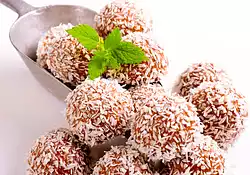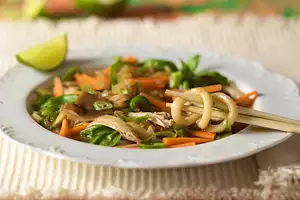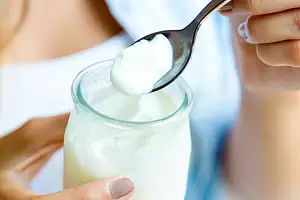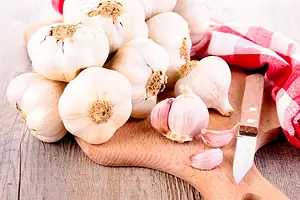Orange juice
About the ingredient orange juice. Including 1,348 recipes with orange juice, nutrition data, and where to find it.
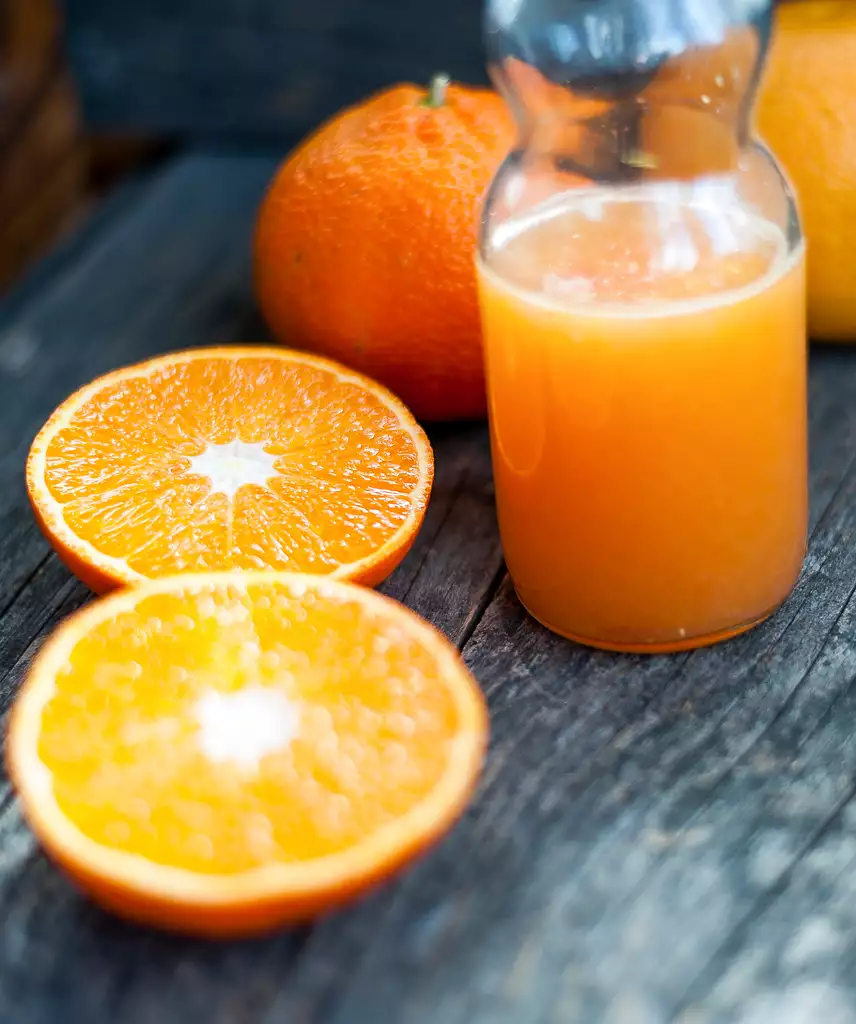
Contents
What is orange juice?
Orange juice is a popular beverage made from oranges by extraction from the fresh fruit, by desiccation and subsequent reconstitution of the dried juice, or by concentration and subsequent addition of water to the concentrate.
The term "orange juice" is also used, both colloquially and commercially, to refer to "concentrated orange juice".
Health
Orange juice is a source of vitamin C (ascorbic acid), potassium, thiamine, Phosphorus G, folic acidVitamin B9) and vitamin B6.
One 8-ounce (227 ml) glass of 100 percent orange juice counts as almost 25 percent of the USDA-recommended daily fruit and vegetable servings, based on a 2,000-calorie diet. Research shows orange juice is more nutrient dense than many commonly consumed 100 percent fruit juices, such as apple, grape, pineapple and prune.
Citrus juices also contain flavonoids that are believed to have beneficial health effects. Orange juice containing pulp seems to be more nutritious than no-pulp varieties due to the flavonoids contained in the pulp. If drunk on an empty stomach, orange juice can exacerbate present gastrointestinal conditions and/or cause mild and temporary stomach upset.
Canned Orange Juice
A small fraction of fresh orange juice is canned. Canned orange juice does retain Vitamin C much better than bottled juice. However, the canned product loses flavor when stored at room temperature for over 12 weeks.
Nutrition
Nutrition Facts
Serving Size 1 cup (249g)Where found
Orange juice is usually found in the beverages section or aisle of the grocery store or supermarket.
Food group
Orange juice is a member of the Fruits and Fruit Juices US Department of Agriculture nutritional food group.
How much does orange juice weigh?
| Amount | Weight |
|---|---|
| 1 cup | 249 grams |
| 1 fl oz | 31 grams |
Related
Fruits and Fruit Juices
| In Chinese: | 橙汁 | |
| British (UK) term: | ||
| en français: | du jus d'orange | |
| en español: | zumo de naranja |
Recipes using orange juice
There are 1348 recipes that contain this ingredient.

Orange Yeast Waffles
Orange Waffles recipe

Spiced Sweet Carrot Soup
Sweet and Spicy Carrot Soup recipe

Spiced Carrot & Orange Soup
Warm up a cool autumn day with this fragrant soup that is full of flavor in every spoonful.

Golden Breakfast Orange Pancakes
Golden Orange Pancakes recipe

Double Berry Muffins
Double Berry Muffins recipe

Mango-Orange Drink
Ripe mangoes with the zesty kick of fresh orange juice and a tangy splash of lemon juice.

Oatmeal Chocolate Chip Cookies
Oatmeal cookies with chocolate chips and orange flavor. Makes 24-36 cookies, depending on how big you make each one. 1 cookie per serving.
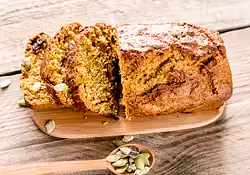
Moist Orange Pumpkin Bread
Give the traditional pumpkin bread a new twist by adding some freshly grated lemon zest and freshly squeezed orange juice. They add some deliciously citrus taste to the moist pumpkin bread. Be sure to make enough, because everyone will ask for a second slice.
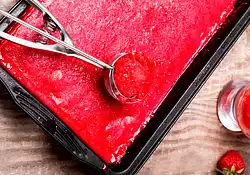
Amazing Strawberry Sorbet
Amazing Strawberry Sorbet recipe

Breakfast Cherry Oatmeal Muffins
Cherry-Oatmeal Muffins recipe

So Good Carrot & Orange Soup
Spicy Carrot and Orange Soup recipe

Orange-Flavored Pancakes
Orange-Flavored Pancakes

Buttermilk Pancakes with Strawberry Sauce
Buttermilk Pancakes with Strawberry Sauce recipe

Shrimp & Fish with Green Vegetables in Orange Sauce
delicate, a bit spicy dish inspired by Asian cuisine, and stir-fried in my favorite old wok..

Spiced Blueberry Jam
Spiced Blueberry Jam recipe
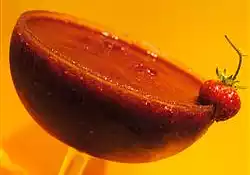
Mama D’s Very Berry Margaritas
This frozen margarita is a berrilicious treat. Sweet, cool, refreshing and goes down smooth. Great for unwinding on a hot day or any festive occasion.
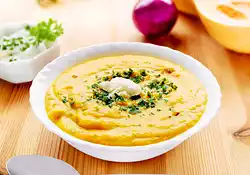
Ginger Squash Soup
Ginger Squash Soup recipe
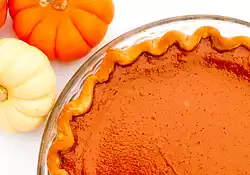
Silky Pumpkin Mousse Pie
Pumpkin Mousse Pie recipe

Cranberry Cake Wreath
Cranberry Cake Wreath recipe

Orange Whole Wheat Pancakes
Orange Whole Wheat Pancakes recipe

Orange Sorbet
Orange Sorbet recipe
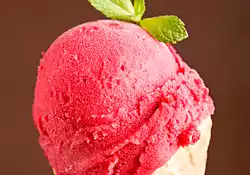
Cranberry Sorbet
Cranberry Sorbet recipe
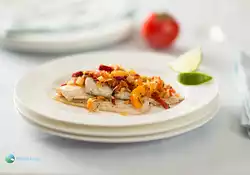
Baked Fish with Quick Tomato Confit
Baked fish with a quick flavourful confit of two kinds of tomatoes and citrus.

